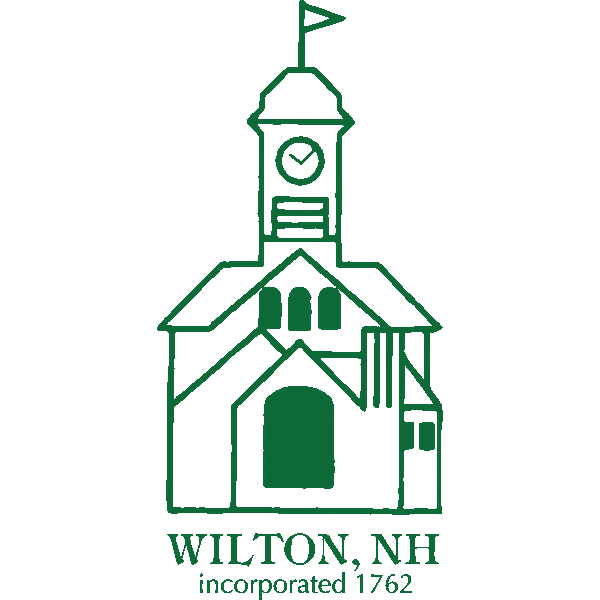This online version of the Zoning Ordinance has not been comprehensively checked against the official version. Neither the Town of Wilton nor the Zoning Board can be responsible for the consequences of any action taken on the basis of any errors in the online text.
This PDF file is the official printable text of the Wilton Zoning Ordinance as prepared for the Town of Wilton. by the Nashua Regional Planning Commission It is also available on the Planning Board page at the official Town of Wilton web site under the “Current Land Use Laws and Regulations” link.
This is the 2001 version of the Zoning Ordinance, including all amendments up to and including those passed by Town Meeting in March, 2001, but not any amendments passed in 2002 or later.
14.0 Watershed District
14.1 Purpose.
14.2 District Boundary.
14.3 Lot Requirements.
14.4 Prohibited Uses.
14.5 Cluster Development.
14.6 Previous Regulations.
14.7 Special Exceptions.
14.1 Purpose.
The purpose of the Watershed District is to preserve the quality of the water and to protect the health and welfare of the residents of the Town of Wilton by minimizing sources of pollution through regulation and restriction of population density and activity, and by keeping organic and inorganic wastes to a minimum.
14.2 District Boundary.
Watershed District shall mean the land and water areas which by seepage or flow introduce water into the old and new reservoirs of the Town. Generally, this includes, but is not restricted to, the watersheds of Mill Brook and Stockwell Brook above the reservoirs. The area shall be defined by the U.S. Soil Conservation Service of the Department of Agriculture and will be shown on the amended zoning map filed with the Town Clerk.
14.3 Lot Requirements.
14.3.1 Area. Minimum lot size six (6) acres per dwelling unit excluding wetlands, land within the 100 year floodplain and land within the deeded flowage rights to the State of New Hampshire Flood Control System. (Amended March 1992.)
14.3.1.1 Alternative lot requirements. Alternative lots (See Section 6.3) shall have a minimum area of ten (10) acres per dwelling unit and meet the established six (6) acre requirement of this section. (Amended March 1992.)
14.3.2 Frontage. A minimum of three hundred (300) feet on a Class V or better road. (Amended March 1992.)
14.3.3 Setbacks. No residence, building, structure, septic system or its containment area, drainage outfall or feed lot shall be located less than two hundred (200) feet from open water and perennial streams nor less than one hundred-fifty (150) feet from intermittent streams, the 100 year floodplain, the deeded flowage rights to the State of New Hampshire Flood Control System (as defined herein above), or any wetland. (Amended March 1992.)
14.3.4 Erosion and Sediment Control. Any disturbance of slopes of fifteen (15) percent or more shall require an erosion and sediment control plan approved by the Planning Board.
14.4 Prohibited Uses.
The following uses are prohibited within the Watershed District. (Amended March, 1991.)
a. The use of any hazardous or toxic materials or liquids within the above stated set back areas.
b. No pasturing of livestock or fowl will be permitted within one hundred (100) feet of open flowing water. It will be the responsibility of the land owner to protect the water by installing adequate and proper fencing.
c. No land shall be filled, excavated or graded and no land shall be used in such a way that would cause substantial or avoidable erosion or alter existing patterns of natural water flow in the Watershed District, except for those uses incidental to permitted residential and agricultural construction.
d. All uses other than residential or agricultural.
14.5 Cluster Development.
Cluster developments shall be permitted within the Watershed District in accordance with the Cluster Development Regulation and provided such proposed Cluster Development shall conform to all set-back requirements specified in this section.
14.6 Previous Regulations.
This District will incorporate the regulation to protect the purity of the water of Mill Brook Wilton, under the provision of Chapter 57, Laws of 1899, entitled "An act for the better protection of public water supplies" as adopted at special Town Meeting on December 4, 1904.
14.7 Special Exceptions. (Adopted March, 2001.)
The following uses will only be allowed as special exceptions by the Zoning Board of Adjustment (ZBA) and by site plan review and approval by the Planning Board. (See also Section 4.4).
14.7.1 Commercial and Industrial Uses. The ZBA may, in appropriate cases subject to appropriate conditions, permit commercial or industrial uses in the District as a special exception, provided it is permitted in the underlying zoning district and complies with the requirements of Section 14.1 Purpose, Section 14.3 Lot Requirements and Section 4.6 Performance Standards.
